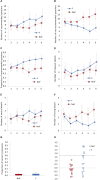Online Simulation Training of Child Sexual Abuse Interviews With Feedback Improves Interview Quality in Japanese University Students
- PMID: 32528374
- PMCID: PMC7265454
- DOI: 10.3389/fpsyg.2020.00998
Online Simulation Training of Child Sexual Abuse Interviews With Feedback Improves Interview Quality in Japanese University Students
Abstract
Although previous research has confirmed the effectiveness of simulated child sexual abuse interviews with feedback, its validation is limited to Western contexts and face-to-face settings. The present study aims to extend this research to non-Western and online/remote training conditions. Thirty-two Japanese undergraduate students were randomly assigned to a control or feedback group. The feedback group conducted a set of six online simulated child sexual abuse interviews while receiving feedback after each interview in an attempt to improve the quality of their questioning style. The feedback consisted of the outcome of the alleged cases and the quality of the questions asked in the interviews. The control group conducted the interviews without feedback. The feedback (vs. control) increased the proportion of recommended questions (first interview: 45%; last interview: 65% vs. first: 43%; last: 42%, respectively) by using fewer not-recommended questions and eliciting fewer incorrect details. Furthermore, only participants in the feedback group (7 out of 17) demonstrated a reliable change in the proportion of recommended questions. The present study explores the efficacy of simulated interview training with avatars in a different cultural setting and in the context of remote administration. The differences between the present study and previous research are discussed in light of cultural and logistical aspects.
Keywords: child sexual abuse (CSA); internet; investigative interviewing; remote learning; serious gaming; simulation training; virtual reality.
Copyright © 2020 Haginoya, Yamamoto, Pompedda, Naka, Antfolk and Santtila.
Figures


References
-
- Abraham R. G. (1985). Field independence-dependence and the teaching of grammar. TESOL Q. 19 689–702. 10.2307/3586671 - DOI
-
- Allwood C. M., Innes-Ker ÅH., Homgren J., Fredin G. (2008). Children’s and adults’ realism in their event-recall confidence in responses to free recall and focused questions. Psychol. Crime Law 14 529–547. 10.1080/10683160801961231 - DOI
-
- Bear G. G., Uribe-Zarain X., Manning M. A., Shiomi K. (2009). Shame, guilt, blaming, and anger: differences between children in Japan and the US. Motiv. Emot. 33 229–238. 10.1007/s11031-009-9130-8 - DOI
-
- Blasbalg U., Hershkowitz I., Karni-Visel Y. (2018). Support, reluctance, and production in child abuse investigative interviews. Psychol. Public Policy Law 24 518–527. 10.1037/law0000183 - DOI
LinkOut - more resources
Full Text Sources

